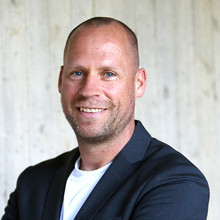
Constantin Kraus BEd, studied teacher training for elementary schools at the Kirchliche Pädagogische Hochschule Graz. He is currently in the master’s program MediaPlayPedagogy at the Danube University Krems. In addition to his work in an afternoon care center at an elementary school, he has been working as a sound designer, graphic designer and motion designer for several years.
Ride2Park
FROG 2020 – Poster Presentation
Co-Authors:
Thomas Wernbacher
Simon Wimmer
When talking about individual mobility the negative effects on the environment and health such as congestion, urban heat, bad air quality and climate relevant emissions are well known and regularly discussed within the political as well as scientific community. Costs related to these factors include certificates for carbon dioxide on the state level as well as costs for infrastructure such as parking space provided by companies. The modal and behavioral shift needed is not on the horizon, in cities such as Judenburg up to 72% of citizens still use the car to get to work or to school. With Ride2Park we offer a gamified solution for solving the climate crisis by motivating employees of medium to large companies to use carpools for getting to work. Drivers and co-drivers can collect rewards as well as can take part in weekly lotteries to win prizes provided by the employer or respective company. Next to principles of gamification our framework also includes nudging as motivational boost. Ride2Park is the first step in our plan to use insights from psychology, game studies and social anthropology to achieve a positive impact on mobility choices of employees. To achieve this goal we plan to enhance existing business solutions by building an additional layer in terms of design, metrics and incentives. For the quantification of our reward system we plan to include the results from established services such as “BlaBlaCar” or “Bike Citizens” (as application for tracking active mobility) on the one hand and user-driven inputs on the other hand.









